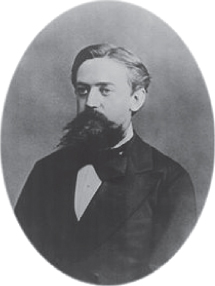4 Discrete Random Variables and Distributions

A Russian mathematician best known for his work on stochastic processes (families of random variables, typically evolving over time). In particular, he introduced a family of stochastic processes exhibiting a certain “memoryless” property, nowadays known as the Markov property.
One of the results that bears his name is Markov's inequality, although it was apparently first proved by P. Chebychev, who was Markov's teacher. An example of an application of Markov's inequality is the fact that (assuming incomes are nonnegative) no more than one‐fifth of the population can have more than five times the average income of the population.
In the March to April 2013 issue of the American Scientist (Volume 101, Number 2), Brian Hayes presented an article entitled “First links in the Markov Chain: Probability and Poetry were Unlikely Partners in the Creation of a Computational Tool,” which starts as follows:
One hundred years ago the Russian mathematician A. A. Markov founded a new branch of probability theory by applying mathematics to poetry. Delving into the text of Alexander Pushkin's novel in verse Eugene Onegin, Markov spent hours sifting through patterns of vowels and consonants. On January 23, 1913, he summarized his findings in an address to the Imperial Academy of Sciences ...
Get Introduction to Probability. now with the O’Reilly learning platform.
O’Reilly members experience books, live events, courses curated by job role, and more from O’Reilly and nearly 200 top publishers.

